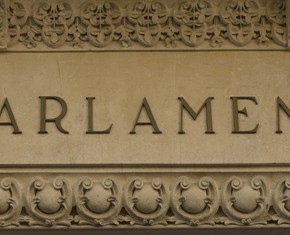The views expressed in our content reflect individual perspectives and do not represent the authoritative views of the Baha'i Faith.
As I’ve pondered more deeply about the question of creating a lifelong habit of prayer, I’ve thought about what encourages the development of a habit.
Things that tend to become easy habits usually bring us palpable support or joy—that’s why we continue doing them, obviously. For a habit of prayer to become unbreakable, I think it is crucial to be able to increase the quality of prayer—to fully experience the support and joy prayer can offer us—so that its results feel more real. The more real the benefits feel, then the quicker we will turn to prayer as a way of life.
Meditation and Action
When we incorporate meditation and action into the process of praying, we make the best use of all three elements in the spiritual equation. As just one example, the Guardian of the Baha’i Faith, Shoghi Effendi, made these personal suggestions about prayer, meditation and action to Ruth Moffett, a Baha’i author and teacher:
First Step. – Pray and meditate about it. Use the prayers of the
Manifestations [the prophets of God] as they have the greatest power. Then remain in the silence of contemplation for a few minutes.Second Step. – Arrive at a decision and hold this. This decision
is usually born during the contemplation. It may seem almost
impossible of accomplishment but if it seems to be as answer to a prayer or
a way of solving the problem, then immediately take the next step.Third Step. – Have determination to carry the decision through.
Many fail here. The decision, budding into determination, is blighted
and instead becomes a wish or a vague longing. When determination is
born, immediately take the next step.Fourth Step. – Have faith and confidence that the power will
flow through you, the right way will appear, the door will open, the
right thought, the right message, the right principle or the right
book will be given you. Have confidence, and the right thing will
come to your need. Then, as you rise from prayer, take at once the
fifth step.Fifth Step. – Then, he said, lastly, ACT; Act as though it had
all been answered. Then act with tireless, ceaseless energy. And as
you act, you, yourself, will become a magnet, which will attract
more power to your being, until you become an unobstructed channel
for the Divine power to flow through you. Many pray but do not
remain for the last half of the first step. Some who meditate arrive at
a decision, but fail to hold it. Few have the determination to
carry the decision through, still fewer have the confidence that the
right thing will come to their need. But how many remember to act as
though it had all been answered? How true are those words – “Greater
than the prayer is the spirit in which it is uttered” and greater
than the way it is uttered is the spirit in which it is carried out.If we are deeply conscious and reflective through action after prayer, it seems that we can make better meaning of our prayers. – cited in Shoghi Effendi’s Principles of Baha’i Administration, pp. 90-91.
Recognizing All Forms of Confirmation
Many of us might know, from firsthand experience, that sometimes after we pray we sit and wait. We hold our breath for some kind of obvious sign or miracle. But it takes action to actualize the power of a prayer. For clarity, this also implies that the spiritual dynamics have an impact on our material existence.
Sometimes we have to move away from seeking mystical responses and look at what do we have the power to do to address our prayers. If we believe the false premise that praying should lead to immediate and obvious shifts, then we may be disappointed or dissuaded. If, however, we are aware of the subtle ways in which our prayers can be answered, perhaps we will be able to better perceive the answers to our prayers.
Gratitude and Praise
Another way we might increase the quality of prayer is through practicing simple gratitude for God—something we can easily overlook. To open our prayer by expressing gratitude for God’s existence and guidance could even transform the energy with which we pray. Prayer can be empowering, and not just a space where we beg God to correct all the wrong, but also where we praise and exclaim our love and joy:
The most acceptable prayer is the one offered with the utmost spirituality and radiance; its prolongation hath not been and is not beloved by God. The more detached and the purer the prayer, the more acceptable is it in the presence of God. – The Bab, Selections from the Writings of the Bab, p. 78.
















Comments
Sign in or create an account
Continue with Googleor